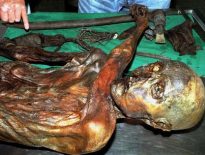(Reuters) – China’s leaders face a parliament meeting next week likely to bring into focus a deepening worry that they have squandered their chance for reform because of fears of instability ahead of a leadership transition.

The annual session of the largely rubber stamp parliament, the National People’s Congress (NPC), opens on Monday. It appears likely to take little action while the ruling Communist Party wards off disruptions to preparing its successors to President Hu Jintao and Premier Wen Jiabao.
The Chinese People’s Political Consultative Conference, an advisory body that brings in non-party groups, meets in parallel with the parliament. It will sit from Saturday.
Behind the ceremony in the Mao-era Great Hall of the People, however, officials and delegates could use the meeting over 10 days or so to voice concerns that leaders have let problems pile up untreated, policy-advisers and researchers said.
“There are a lot of complaints that problems are building up in Chinese society. China is doing well compared to other countries, but no social group seems happy,” said Zheng Yongnian, the director of the East Asian Institute at the National University of Singapore.
“It will definitely be reflected in the NPC in calls for more debate about reform and more pressure for the government to act.”
China’s party-run parliament is a regimented show of unity that affirms, rather than debates, policies. This year’s session should stick to that pattern, but could also expose more impatience about the direction of the country in speeches and legislative proposals, said Zheng.
Hu and Wen are due to retire from their party posts late this year, and to step down from the presidency and premiership at next year’s parliament, when Vice President Xi Jinping is likely to be named president and Li Keqiang premier.
When they hand over power in late autumn, China could be headed for its slowest full year of growth since Hu and Wen took office a decade ago. The economy ended 2011 with its slackest quarter of growth in 2-1/2-years at 8.9 percent.
This year’s session will not reveal the economic and social policy shifts that Xi and Li could embrace, but could give a taste of the challenges they will be left to grapple with.
Those issues include calls to tame state conglomerates that many economists say exploit their dominance, proposals to ease income inequalities and tax burdens on ordinary employees and calls to open up more opportunities and areas to private businesses.
“China’s economy has reached a stage where reforms must be accelerated urgently,” said Wang Jun, an economist at the China Center for International Economic Exchanges, a prominent government think tank in Beijing.
“The reform dividend that we enjoyed in the past three decades is diminishing, whether you look at short- or long-term growth potential.”
The estimated 600 million people China has lifted out of rural poverty over 30 years of development remain far from urban affluence and the yawning income gap is widening.
REFORM OR CRISIS?
Premier Wen will read out his “state of the nation” report on Monday to rows of nearly 3,000 delegates vetted by the Communist Party, among them some of China’s richest people.
Wen is expected to set an economic growth target of 7.5 percent for 2012, lower than the longstanding annual goal of 8 percent, showing a willingness to accept slower growth while fixing structural issues, investment analysts say.
A commentary last week in the People’s Daily, the party’s main newspaper, gave voice to anxieties that crisis could erupt unless reform efforts break past entrenched interests.
“Better to have ‘imperfect’ reforms, rather than a crisis from lack of reforms,” it said in a commentary widely discussed by political observers.
The critics of the status quo say China’s growth was fuelled by the “reform and opening up” of paramount leader Deng Xiaoping from 1978, reinforced by President Jiang Zemin and Premier Zhu Rongji in 1990s. But reform is losing steam, they say.
Hu and Wen have used rapid growth to extend social welfare to more workers and to the countryside. But, the critics say, they have failed to tackle cosseted state firms, spread opportunities to smaller businesses, and break down barriers for rural migrants flocking to cities.
“Many people are saying the last 10 years were lost years, because during Jiang Zemin and Zhu Rongji’s time, China had a very strong reform momentum, but now that reform momentum has been lost,” said Zheng, the Singapore-based researcher.
(Editing by Don Durfee, Nick Edwards and Ron Popeski)



